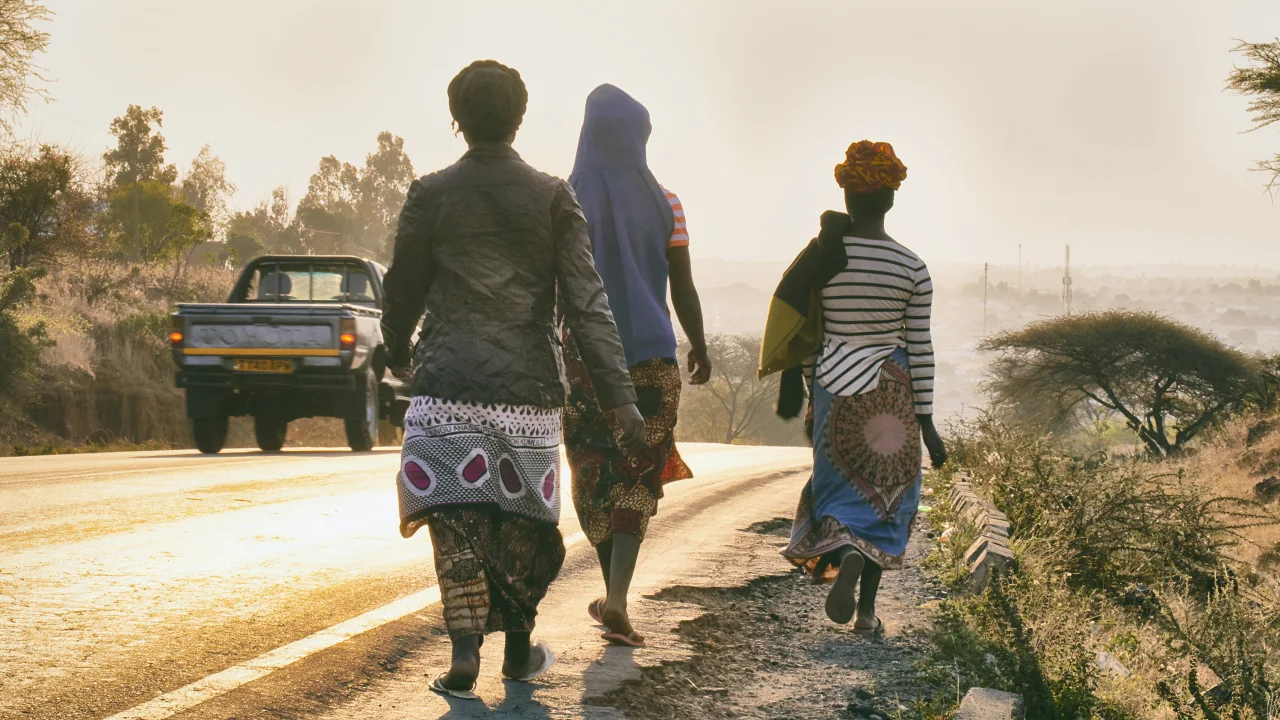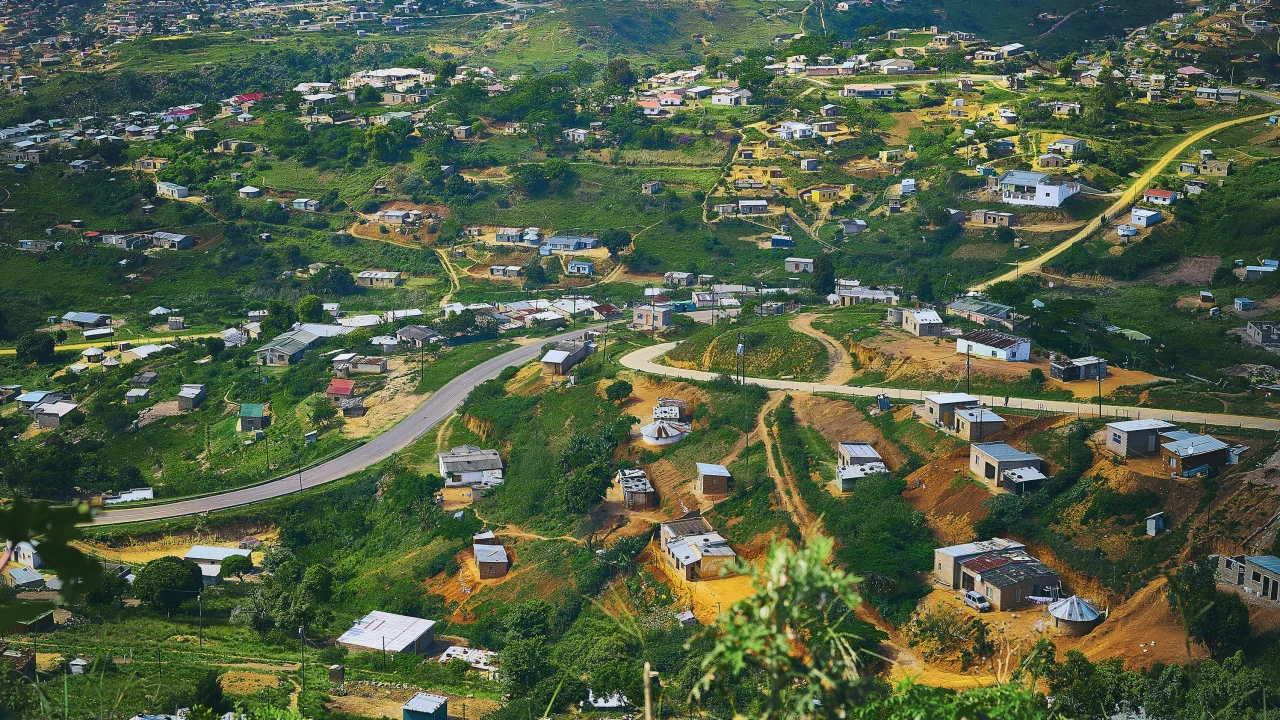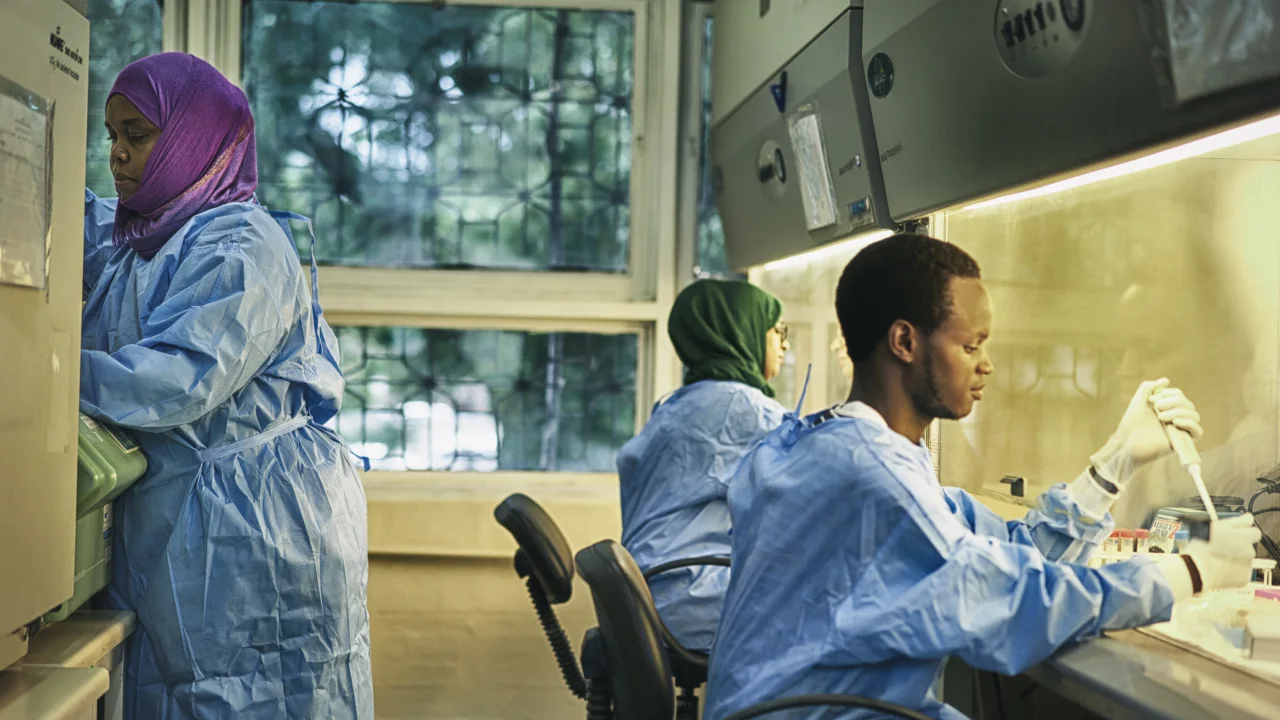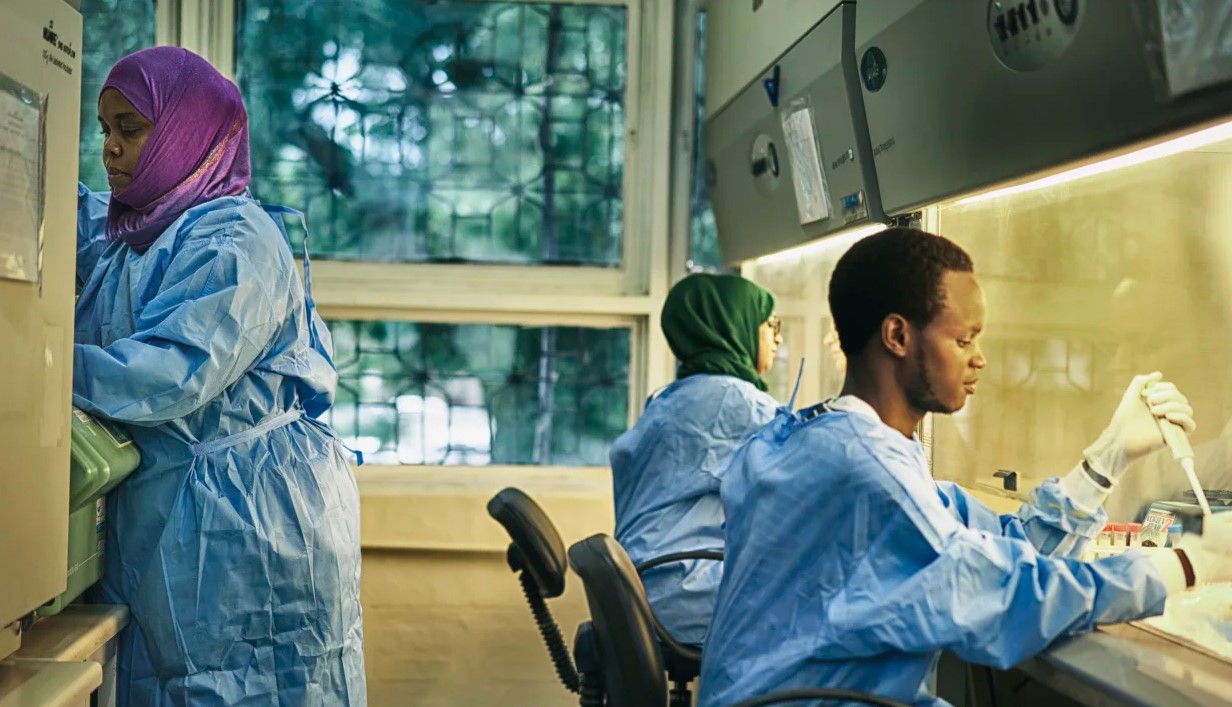A novel trial that has been described as “the last roll of the dice” for a generation of HIV vaccines has entered its latter stages.
Called PrEPVacc, the trial is testing two vaccines alongside two forms of pre-exposure prophylaxis (PrEP) to test vaccine efficacy while offering protection to prevent the spread of HIV.
African-led and coordinated out of Entebbe, Uganda, with international support, its success could mark the start of a new phase of vaccine development. Should it fail, it could also see immunologists give up on a generation of vaccines.
Nearly 40 years since HIV was identified as the cause of AIDS, and 36 years since the first HIV vaccine trial, the medical community still does not have a working vaccine. Although antiretroviral treatments are well established, access varies. UNAIDS estimates 630,000 people died from AIDS-related illness globally in 2022, while 39 million people are living with HIV, including 1.3 million people newly infected last year.
The hope is that PrEPVacc will succeed where other trials have fallen short – most recently HVTN 702 (dubbed “Uhambo”), halted in February 2020, HVTN 705 (“Imbokodo”), discontinued in 2021 and HVTN 706 (“Mosaico”) in 2023, all of which were found to be safe but ineffective at preventing HIV.
Only one clinical trial, which took place in Thailand with results published in 2009, has been found to show modest effectiveness at preventing HIV infection. The efficacy of that vaccine, RV144, was about 30% (although the findings continue to be debated). For PrEPVacc to be considered a success, either of the two vaccines being tested will need to achieve an efficacy of at least 70%.
One vaccine combines pieces of synthetic HIV DNA with a protein base, while the other combines DNA, MVA (a weakened pox virus) and a protein base, like that used in RV144.
“This is an evolution (of RV144), not a revolution,” said Jonathan Weber, lead applicant and coordinator of PrEPVacc, and director of the Imperial College Academic Health Science Centre in London. “These are both regimens which have never gone into efficacy study before,” he added, describing the vaccines as “the best we feel, at the moment, that medical science can provide.”

The clinical trial began enrollment December 2020 and signed up the last of its 1,513 participants in March 2023. The participants are all between 18-40 years old and live in South Africa, Uganda or Tanzania.
All three countries have high rates of HIV/AIDS in adults, sitting within the top 15 countries in the world per 2021 estimates. But that is not necessarily why they were chosen to participate, said Eugene Ruzagira, PrEPVacc trial director.
Ruzagira is himself Ugandan, based in Entebbe at the Medical Research Council/Uganda Virus Research Institute, and oversees a team of researchers at trial sites in Durban, South Africa, Masaka, Uganda, and Dar es Salam and Mbeya, Tanzania. These locations, he explained, “had experience doing HIV prevention studies, not only vaccine trials, have established very good connections with the communities, and have the infrastructure we require.”
Though funding for PrEPVacc came from the European Union-sponsored EDCTP, “this genuinely needed to be an African study led by Africans and coordinated in Africa, where the data is analyzed in Africa and the laboratory work is done in Africa,” said Weber.
“It’s about time,” Ruzagira said. “We’ve had a few decades of preparation.”
Combining a vaccine with PrEP
In the randomized trial, each participant receives four injections of either vaccine A or B or a saline placebo over a 48-week schedule, along with a course of PrEP taken daily until week 26, a fortnight after the third injection – the logic being that the immune response will peak around then, said Ruzagira.
The US Centers for Disease Control and Prevention estimates PrEP taken as prescribed reduces the risk of getting HIV from sex by about 99%, and among people injecting drugs by at least 74%. The PrEPVacc trial is distributing two forms of PrEP pills, Truvada or Descovy, and is testing if the newer Descovy has the same or better effectiveness among the trial cohort. (Descovy currently holds FDA approval for use by men but not women.) Evaluating the combination of a trial HIV vaccine and PrEP is a first, say organizers.
Luwano Geofrey was the first trial participant in Masaka, Uganda. “I felt this was a big project that needed our support as a community,” he told CNN, in an interview conducted in the Luganda language by a PrEPVacc community engagement officer.
“One of the things I liked most was that participants would have routine HIV counseling and testing, free condoms, PrEP and support and care,” he explained. “I live and work in (a) fishing community. Most times, we lack these services.”
PrEP has not achieved high usage levels in Africa, said Weber, describing “massive issues about access and uptake (and) acceptance of PrEP as a reasonable intervention.”
Social stigma can complicate matters. In Uganda, for instance, PrEP is still distributed by HIV clinics, said Ruzagira, and being seen to enter a well-known HIV clinic can put people off seeking the medication.
“What we always hoped was once people started PrEP, they would see that it was easy, it was tolerable, it was acceptable, and would continue using it as long as they were at risk,” said Weber.
After 26 weeks, trial participants are given the option to access PrEP from public health facilities, but not everyone is transitioning to long-term use, say organizers.
Geofrey said his PrEP use during the 26 weeks was not always consistent, and that afterward, he tried to secure the drug from a local facility, but “more often than not (it) ran out of stock.”
Such issues are not limited to Uganda. “I would say that PrEP uptake is not what we would like it to be,” said Nishanta Singh, principal investigator at the Verulam clinical research site in Durban, South Africa.
“But it’s something that the community and the general population is starting to learn about,” she added. “We are seeing an increase in PrEP uptake as the weeks of the trial go by. Obviously, it’s not optimal, but it’s a work in progress.”

The forecast for a successful vaccine
In Verulam, more than half of participants have already received all four injections. As with the other trial sites, participants are tested and receive counselling every four to eight weeks, and will be monitored until October 2024.
The trial team is blind to the data, which is processed by an Independent Data Monitoring Committee. The results of the trial are scheduled for release in the fourth quarter of 2024.
In the case of vaccine trials, no news can be good news. Trials can be halted by monitoring committees if early data indicates a lack of efficacy (as was the case with HVTN 702) but that has not yet been the case for PrEPVacc.
“This is indeed a good sign, however, it is possible that there have been very few infection events in this trial, given that PrEP use was also encouraged in all participants,” said Sharon Lewin, a professor of medicine at The University of Melbourne.
Lewin, also president of the International AIDS Society, is not associated with the PrEPVacc trial, and offered caution regarding the vaccines’ potential efficacy.
“I would predict that the DNA, MVA and protein vaccines won’t provide too much protection from HIV infection, based on what we know from prior studies,” she said, although she commended the integration of PrEP into the Africa-led study, noting, “it’s also fantastic to see the first Phase 3 vaccine trial funded from outside the US.”

PrEPVacc Investigators/Frank and Helena Herholdt - PrEPVacc investigators in the laboratory at the Muhimbili University of Health and Allied Sciences, Dar es Salaam, Tanzania.
Should one or both vaccines prove effective, further trials would be needed and would likely involve multiple international partners. Should it fall short, “it’s really back to basics,” said Weber. “There’s nothing else around which looks any better of this generation of vaccine products.”
“In this decade, it will be the last roll of the dice,” he added. “My prediction is there won’t be another efficacy study of an HIV vaccine until the 2030s.”
Lewin does not believe that will be the case, pointing to new and rapidly advancing science.
One approach undergoing early testing is germline targeting, in which a series of slightly different vaccines are administered, designed to stimulate B-cells into producing “broadly neutralizing antibodies.” These powerful but hard-to-elicit antibodies could potentially damage the HIV virus as it mutates in an attempt to escape them, scientists theorize.
And last summer, a Phase 1 trial began in the US and another in Rwanda and South Africa of multiple vaccines utilizing mRNA (messenger ribonucleic acid). mRNA instructs the body to create proteins which induce an immune response and has already been used successfully in two Covid-19 vaccines.
But for the PrEPVacc team and its participants, there’s no option but to hold tight until the end of 2024 and hope that the results will be better than for other trials. “I did my very first HIV vaccine trial in 1991,” recalled Weber. “I think that probably tells you all you need to know about the agony of the search.”
Geofrey recalled what the trial asked of him: being told he and his wife should not bear children during its run; her initial concern that the PrEP bottles he came home with meant he was being treated for HIV; the initial disinformation in his community that the study was introducing HIV to participants, rather than seeking to prevent it. “It takes a lot of courage and time to be part of a trial like this,” he reflected.
“I know if the vaccines being tested give us positive results, I will consider myself, other participants, and scientists as the heroes of this century.”

